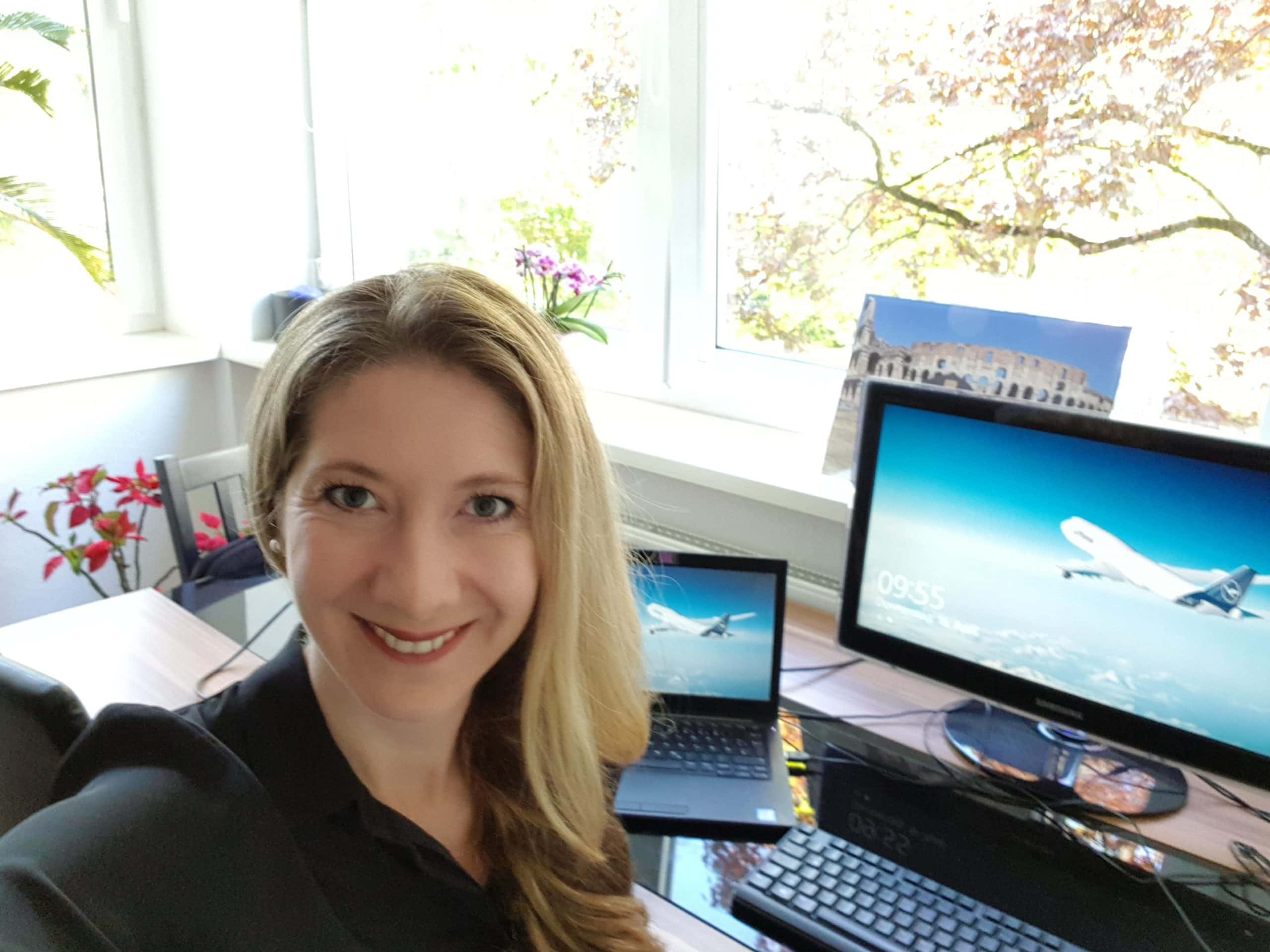What We’re Made Of: Tanja Langer, Lufthansa Systems
Share

What We’re Made Of is a Q&A series that looks at how companies in the aviation industry are tackling challenges brought on by the COVID-19 pandemic. We’ve had to adapt to changes in where, when and how we work, but we are resilient. If you would like to share your experience, e-mail editor@apex.aero.
Tanja Langer
Consultant, Lufthansa Systems
Location: Frankfurt
Day 26 of working from home
Date of writing: April 15
Where are you writing from?
I am working from my dining table in my living room.
How are you trying to maintain “business as usual” or communicating with your team?
We have regular calls and virtual coffee breaks to ensure continuous communication and exchange.
What’s your new office attire or go-to comforts at home during this time?
I try to keep up my daily morning routine, but I abandoned my entire business wardrobe and switched to a more comfortable one.
“The crisis has been an opportunity to address and implement digital processes more quickly. In the long term, customer experience will benefit from these developments.”
Describe where your business was at the beginning of 2020. What were your goals/projections for 2020?
The new decade looked quite promising for Lufthansa Systems. We were celebrating our 25th anniversary. In recent years, our consulting unit has grown with the aim of optimizing everyday flight operations by designing them to be more profitable. In the coronavirus context of air travel, many projects have pivoted to support airlines with repatriation flights and the transport of protective equipment. We have also set up online conferences, open to everyone, where our experts share their knowledge on how to navigate these challenging times. Lufthansa Systems’ Airline Consulting team has prepared a comprehensive crisis recovery package that covers crucial aspects of customer experience. We offer our customers advisory services in this area.
How prepared was your company to instate remote working during the COVID-19 pandemic? Any tips on how to remain productive under these new circumstances?
Each of our operational areas have business continuity plans in place. With the outbreak of the coronavirus, the objective was to make sure we are prepared and continue to maintain our services while assuring the health of our staff.

Some companies may have been inspired to create new product lines or redesign existing products or services as a result of the pandemic. How is it driving innovation?
The crisis has been an opportunity to address and implement digital processes more quickly. In the long term, customer experience will benefit from these developments. Airlines, as well as airports and tour operators, for example, have been required to develop new approaches to adapt to changed customer demands and new health concerns (social distancing, increased sanitization, queuing management, etc.) in order to bring back customer confidence and to be successfully prepared for the future.
Can you share some specific challenges the airline business in regards of customer experience has faced as a result of the outbreak? How did you overcome them and how can the industry learn from your experiences?
One of the most apparent challenges for airlines and their customers is the high call volumes and requests across all communication channels (call center, social media, B2B channels etc.). Furthermore, there’s the lagging time-to-market response and lack of transparency of ad-hoc initiatives and the unclear implementation of refund policies. In crisis recovery, it is crucial to set up measures to stabilize customer experience and to restore customer confidence.
What’s one thing that will never be the same again for commercial aviation?
The pandemic will transform the airline industry globally and accelerate the consolidation of the market, resulting in increased competition. In combination with changed customer behavior, airlines will have to adjust their passenger experience fundamentally and set up strategies to meet the needs of travelers as well as secure their confidence. Airlines’ strategies and business models will also need to be adjusted according to regionally different governmental restrictions. Acting smart, swift and with localized strategies will be crucial for the survival of internationally operating airlines.
Read more about the coronavirus impact on the air travel industry, including APEX’s position on the matter, and subscribe to the APEX Daily Experience newsletter to stay up to date.



